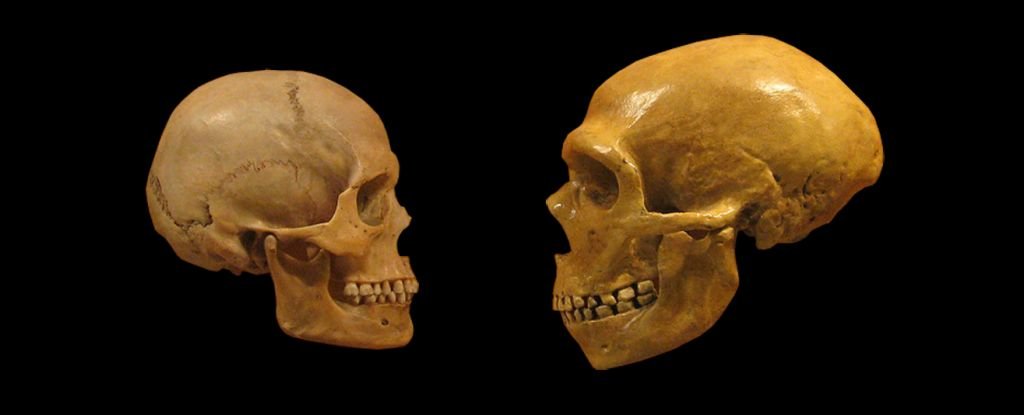Products You May Like
Scientists experimenting on mice have found evidence that key parts of the modern human brain take more time to develop than those of our long extinct cousin, the Neanderthal.
Like the hare and the tortoise, slow and steady is the winner here. The extra time is caused by protein differences that also appear to reduce chromosome errors, ultimately resulting in a healthier, more robust population.
The study’s results imply that this step in the development of our neocortex (the wrinkled outer layer responsible for higher order thinking) plays a role in protecting us from disease, a feature Neanderthals appear to be missing.
In recent years, advances in genetics have allowed scientists to sequence DNA extracted from ancient remains, revealing detailed information about how the Neanderthal genome compares and contrasts with our own.
We know, for example, of around 100 amino acids – the compounds that make up proteins – that changed when modern humans diverged from the branch that gave rise to Neanderthals and another close cousin, the Denisovans.
Amino acid substitution can have significant effects, but it was unclear what functions these substitutions changed between humans and Neanderthals.
Six of the identified substitutions exist in proteins already known to play a role in the distribution of chromosomes during cell division. So a team of researchers led by geneticist Felipe Mora-Bermúdez of the Max Planck Institute of Molecular Cell Biology and Genetics in Germany conducted experiments to see if they could determine the role these amino acid changes might play in neocortex development.
The natural subject was laboratory mice, which happen to share with Neanderthals (and apes) those same six amino acids within the relevant proteins. Using CRISPR Cas-9, the researchers substituted those amino acids for those found in modern humans.
They also took the research in the opposite direction. They grew organoids of human brains from embryonic stem cells – lumps of brain tissue that are not alive or sentient – and replaced the modern human amino acids with the Neanderthal/mouse/ape variants.
The results were striking and fascinating.
“We found that three modern human amino acids in two of the proteins cause a longer metaphase, a phase where chromosomes are prepared for cell division,” Mora-Bermúdez explained, “and this results in fewer errors when the chromosomes are distributed to the daughter cells of the neural stem cells, just like in modern humans.”
In addition, the metaphase in the Neanderthalized human organoids was shorter, resulting in twice the number of chromosome separation errors compared to the control organoids. This suggests that three modern human amino acid substitutions are responsible for fewer chromosome distribution errors compared to Neanderthals.
Since errors in the number of chromosomes, known as polysomies, can result in serious disorders, as well as cancers such as leukemia and carcinoma, the results suggest that the change was to the benefit of modern humans. They also suggest that brain function in Neanderthals may have been impacted by chromosomal disorders at a higher rate than we see in modern humans.
“The present data imply that the probability of any such detrimental effects of chromosomal mis-segregation may be lower in modern humans than in Neanderthals, Denisovans, and apes,” the researchers wrote in their paper.
“Further work is needed to address the importance of these effects for traits characteristic of modern humans.”
The research has been published in Science.
